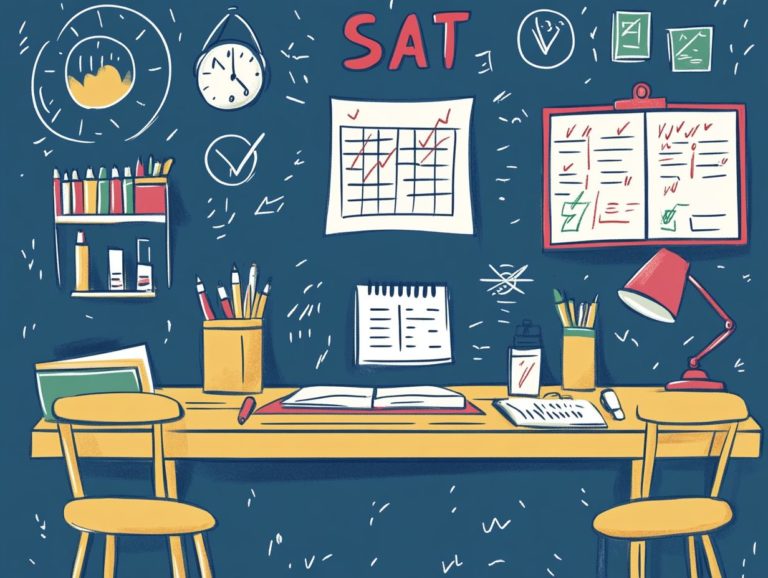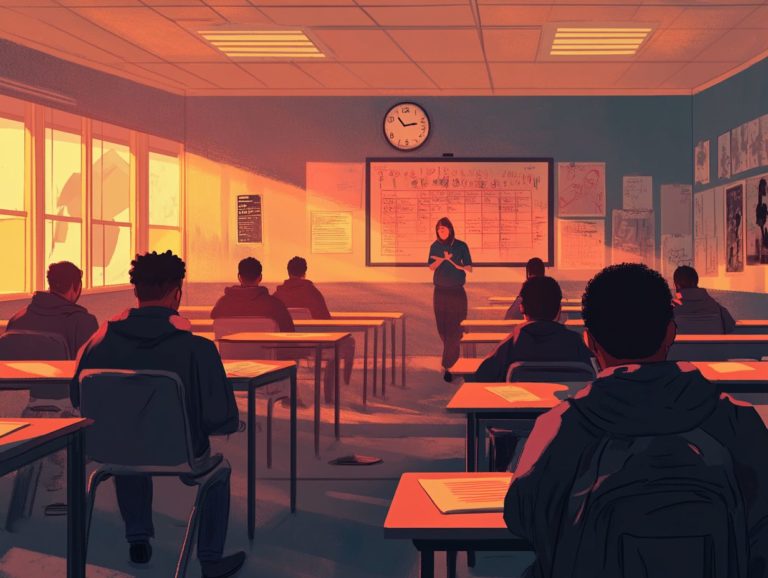the future of standardized testing in education
Standardized testing is a crucial topic in education today! It affects how you learn and how schools are run.
We will explore its many roles in education, weighing the arguments for and against its use. You ll gain insight into current testing methods and their implications.
We will also look at other ways to assess learning, highlighting their effectiveness in measuring your understanding. Join us as we navigate the complexities and future of standardized testing in education.
Contents
- Key Takeaways:
- The Role of Standardized Testing in Education
- Current State of Standardized Testing
- The Future of Standardized Testing
- Alternative Assessment Methods
- Implications for Education
- Frequently Asked Questions
- What is the current state of standardized testing in education?
- How is technology impacting the future of standardized testing in education?
- What are some proposed changes to the traditional standardized testing format?
- How do standardized tests impact students and their education?
- What is the role of standardized testing in college admissions?
- What is the future of standardized testing in education?
Key Takeaways:
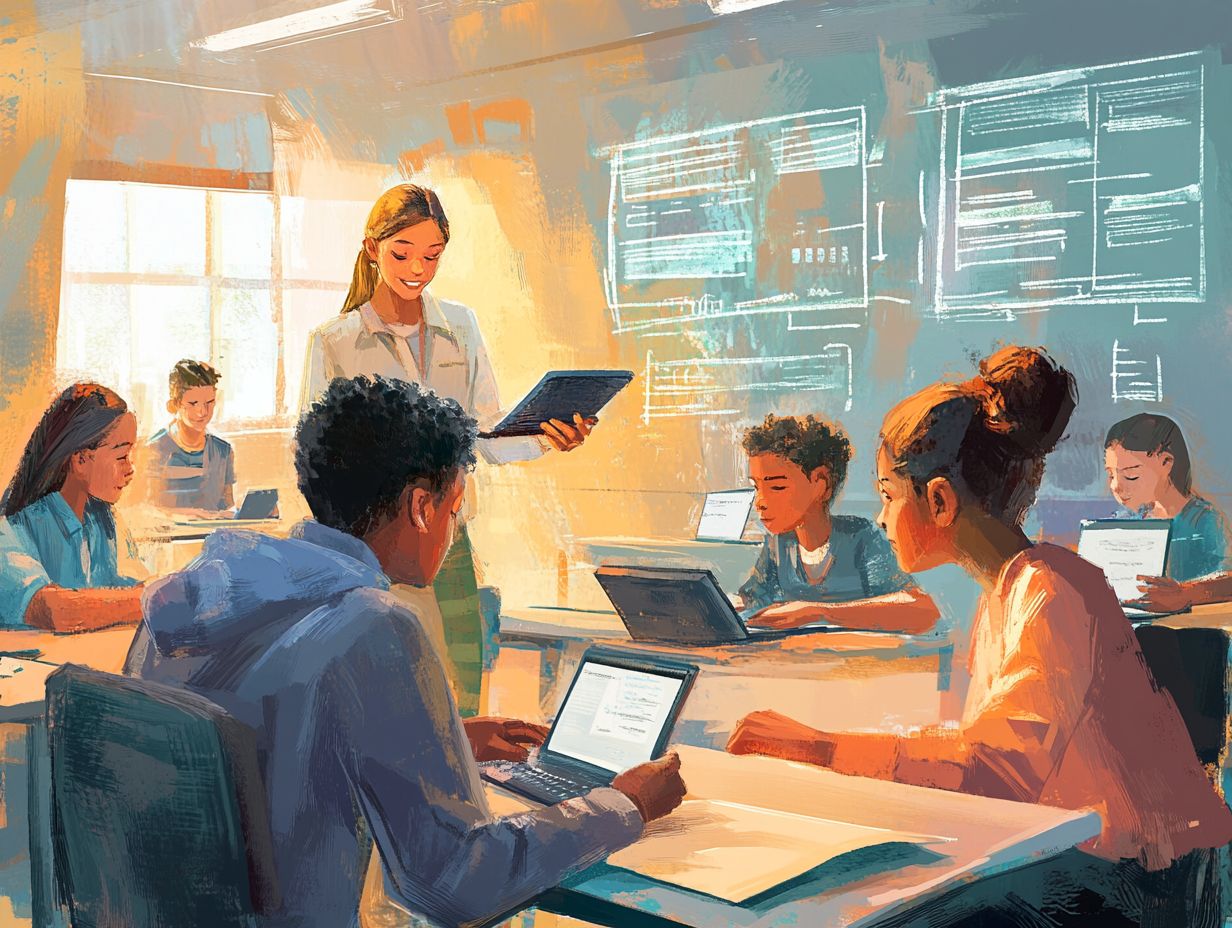
Standardized testing plays a significant role in education but also faces criticism. The future may involve changes and innovations, and alternative assessment methods are being explored.
The implications for education will impact students, teachers, and schools in various ways.
What is Standardized Testing?
Standardized testing evaluates student learning through consistent exams. These tests compare performance across schools and ensure fairness.
Standardized tests have evolved since the early 20th century. They now include various types of questions that measure critical thinking and problem-solving abilities.
These assessments are vital for discussions about fairness in education. They directly affect how resources are allocated and which schools need improvement.
The Role of Standardized Testing in Education
Standardized testing shapes educational policy throughout the United States. It influences curriculum design and funding allocations.
These assessments are crucial for measuring student learning and providing insights into educational performance.
The data collected helps teachers make informed decisions in the classroom.
Arguments for and Against Standardized Testing
The debate over standardized testing includes strong arguments on both sides. Supporters believe it enhances fairness and accountability in education.
However, critics argue that these tests can reinforce existing inequities. They may not capture the full range of student abilities.
Supporters contend that standardized tests provide a reliable way to assess student achievement across different groups.
Yet, there are concerns about over-relying on these tests. This focus can limit creativity and critical thinking in the classroom.
It s essential to balance accountability with a well-rounded approach to education. Assessments should reflect diverse learning styles and promote true educational fairness.
Current State of Standardized Testing
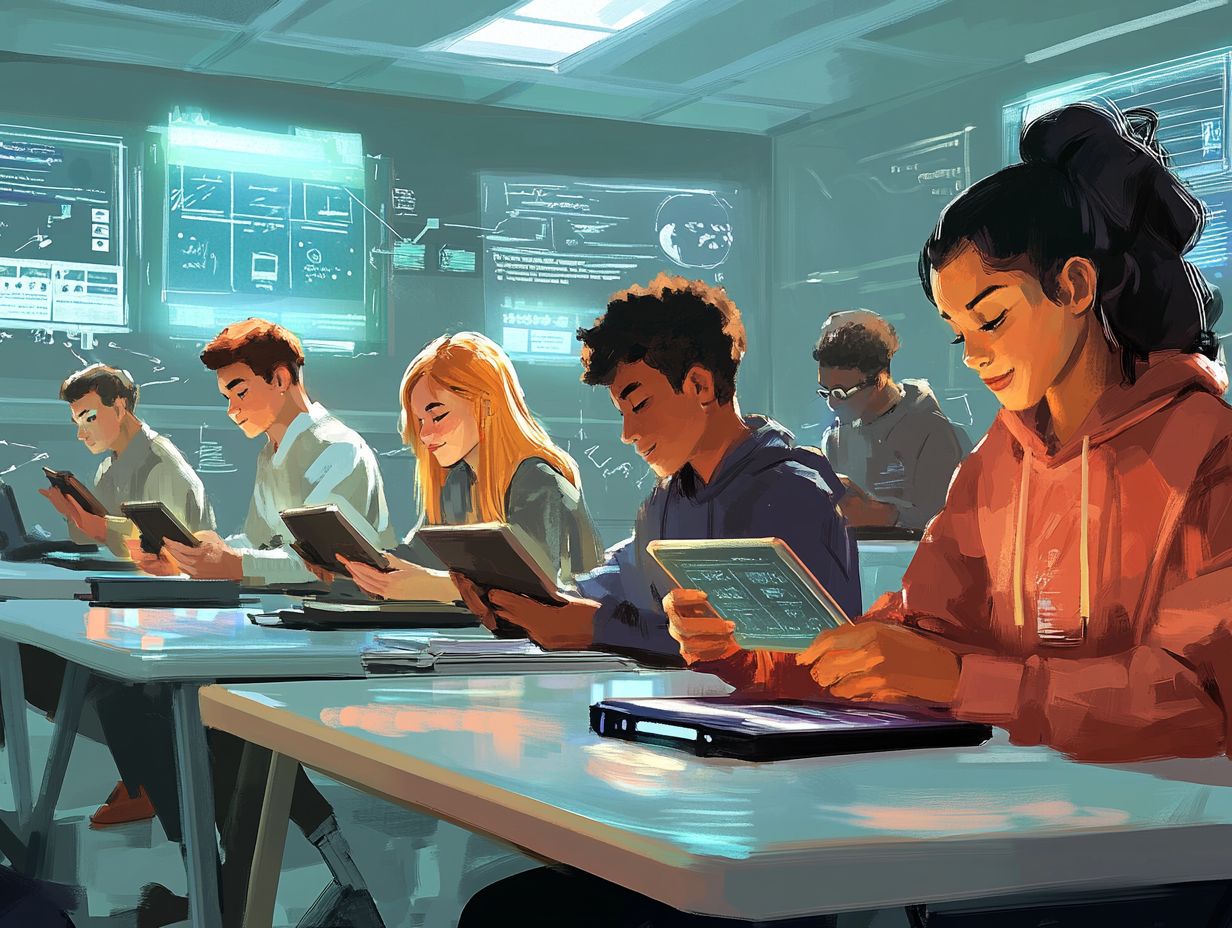
The current landscape of standardized testing presents a dynamic environment characterized by evolving assessment designs, such as matrix sampling and through-year assessments. These innovations strive to deliver a more nuanced understanding of student performance.
As educational institutions navigate the complexities of standardized tests’ effectiveness and fairness, advancements in testing technology are fundamentally transforming the development and implementation of assessments across schools nationwide.
Current Testing Methods Explained
Current testing methods in standardized assessments encompass a spectrum from traditional multiple-choice formats to new performance-based tests that measure real-world skills.
The integration of artificial intelligence and advanced testing technologies has transformed how educational assessments are crafted and administered, giving educators the power to analyze responses more effectively and provide richer data on student performance.
These innovative approaches come with a host of benefits. They include customizing assessments to align with individual learning styles and analyzing responses in real time.
For instance, computer-adaptive testing means the test changes questions based on how well you answer previous ones, offering a more personalized experience.
Challenges remain, especially regarding access to technology and potential bias in tests. By harnessing machine learning models, educational institutions are progressively enhancing the reliability of results, yet the importance of retaining a human touch in assessing comprehension remains paramount.
The Future of Standardized Testing
Get ready for exciting innovations in assessment designs that prioritize fairness for all learners across the United States. Expect to see significant advancements that integrate advanced technologies, such as artificial intelligence, enabling more personalized and equitable assessment experiences for every student.
Potential Changes and Innovations
Potential changes and innovations in standardized testing are set to center on enhancing the validity and reliability of assessments. This will be achieved through the integration of artificial intelligence and performance-based methodologies.
These advancements aim to cultivate a more equitable testing environment that truly reflects the diverse capabilities and learning styles of students. For instance, adaptive testing, driven by AI, customizes questions to align with an individual’s ability level, allowing for a more personalized assessment experience.
This transformation could reduce anxiety and better showcase a student’s true skills. Incorporating project-based assessments into the standardized testing framework could offer deeper insights into a student s understanding and application of knowledge, moving beyond mere rote memorization.
Such methodologies not only enhance evaluation accuracy but also promise to nurture a more inclusive atmosphere where diverse talents are recognized and celebrated, ultimately contributing to more equitable educational outcomes.
Alternative Assessment Methods
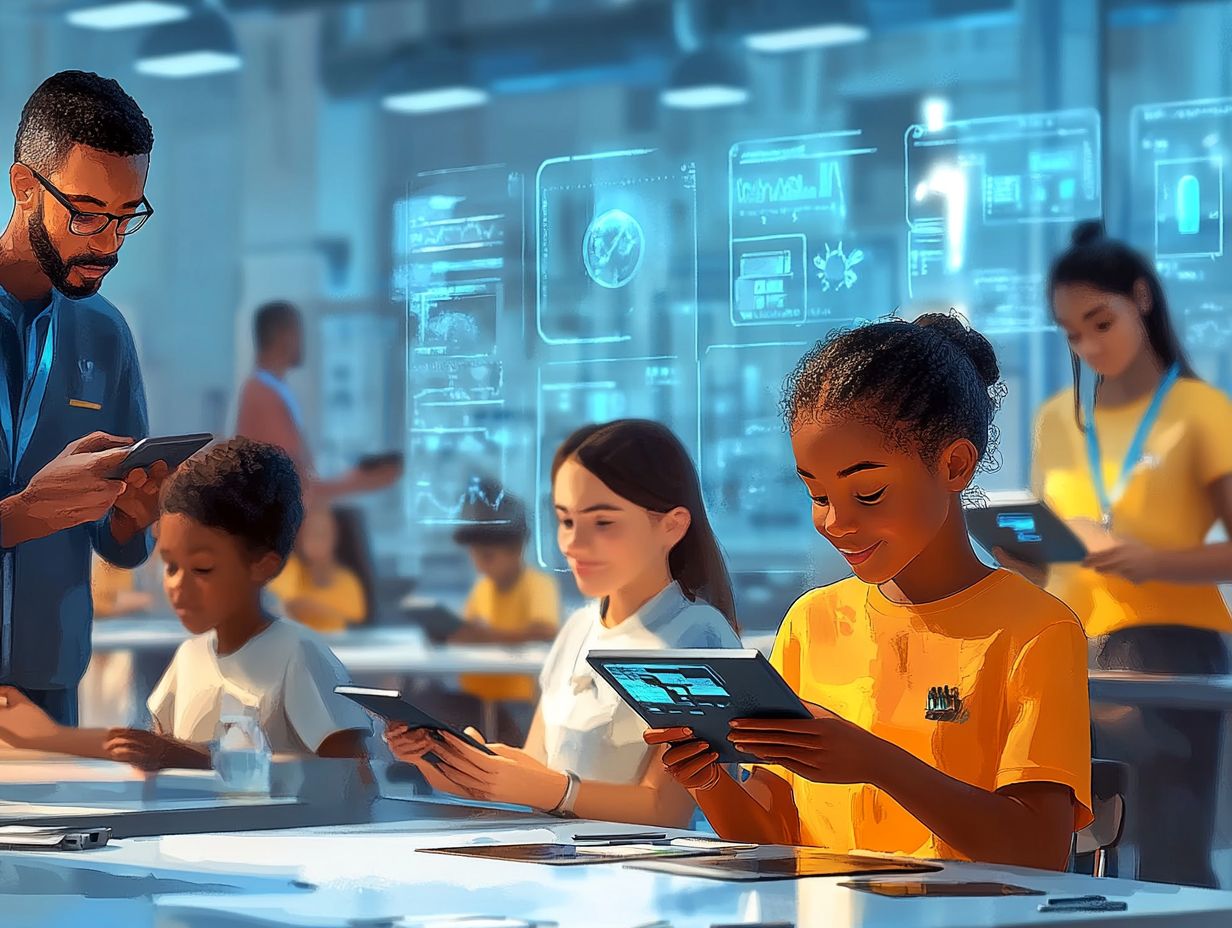
Alternative assessment methods, such as performance-based assessments and formative evaluations, present a unique approach to measuring student learning. These strategies aim to foster educational equity by offering a more comprehensive view of each student s capabilities.
By prioritizing real-world applications of knowledge and skills, these methods enable educators to implement data-driven instruction that is tailored to meet individual learning needs.
Join the conversation about the future of education and how we can make assessments fairer for every student!
Exploring Alternative Ways of Measuring Student Learning
Exploring alternative ways to measure student learning opens up a world of assessment techniques, including performance tasks assignments that require students to apply their skills in real-life situations. By concentrating on how you demonstrate your understanding, these methods provide invaluable insights into instructional strategies that can elevate educational outcomes.
These techniques not only paint a richer picture of your individual learning journey but also cater to diverse learning styles, fostering inclusivity in the classroom.
For instance, consider a case study conducted at a middle school that highlighted the effectiveness of project-based assessments, where students collaborated to tackle real-world challenges. The results revealed not only a deeper comprehension of the subject matter but also a notable increase in motivation and engagement among students.
Such assessments give educators the power to pinpoint specific areas for improvement. This paves the way for tailored interventions that ultimately create a fairer learning environment.
Implications for Education
Standardized testing has a complex impact on education that everyone should understand. It profoundly affects students, teachers, and schools, while simultaneously prompting essential questions about educational equity.
As standardized tests play a crucial role in assessing academic standards and student learning, understanding their consequences is vital for cultivating a more equitable and effective educational system in the United States.
Impact on Students, Teachers, and Schools
The impact of standardized testing on educators and the school environment is profound, shaping educational practices and influencing learning outcomes in both direct and indirect ways.
While these assessments can provide valuable data for teachers, they often lead to the troubling practice of focusing only on what is on the tests. This raises valid concerns about educational equity and the overall richness of your learning experience.
Various case studies highlight the complexities of this issue. For instance, in districts where schools heavily focused on standardized assessments, some students may have improved their test scores. However, this often came at the cost of developing critical thinking skills.
Conversely, schools that embraced more diverse forms of evaluation discovered that equity in educational opportunities improved, particularly for underrepresented groups.
Ultimately, the effects of testing extend far beyond mere academic performance they influence school policies, resource allocation, and the essence of student engagement in diverse learning environments.
Frequently Asked Questions
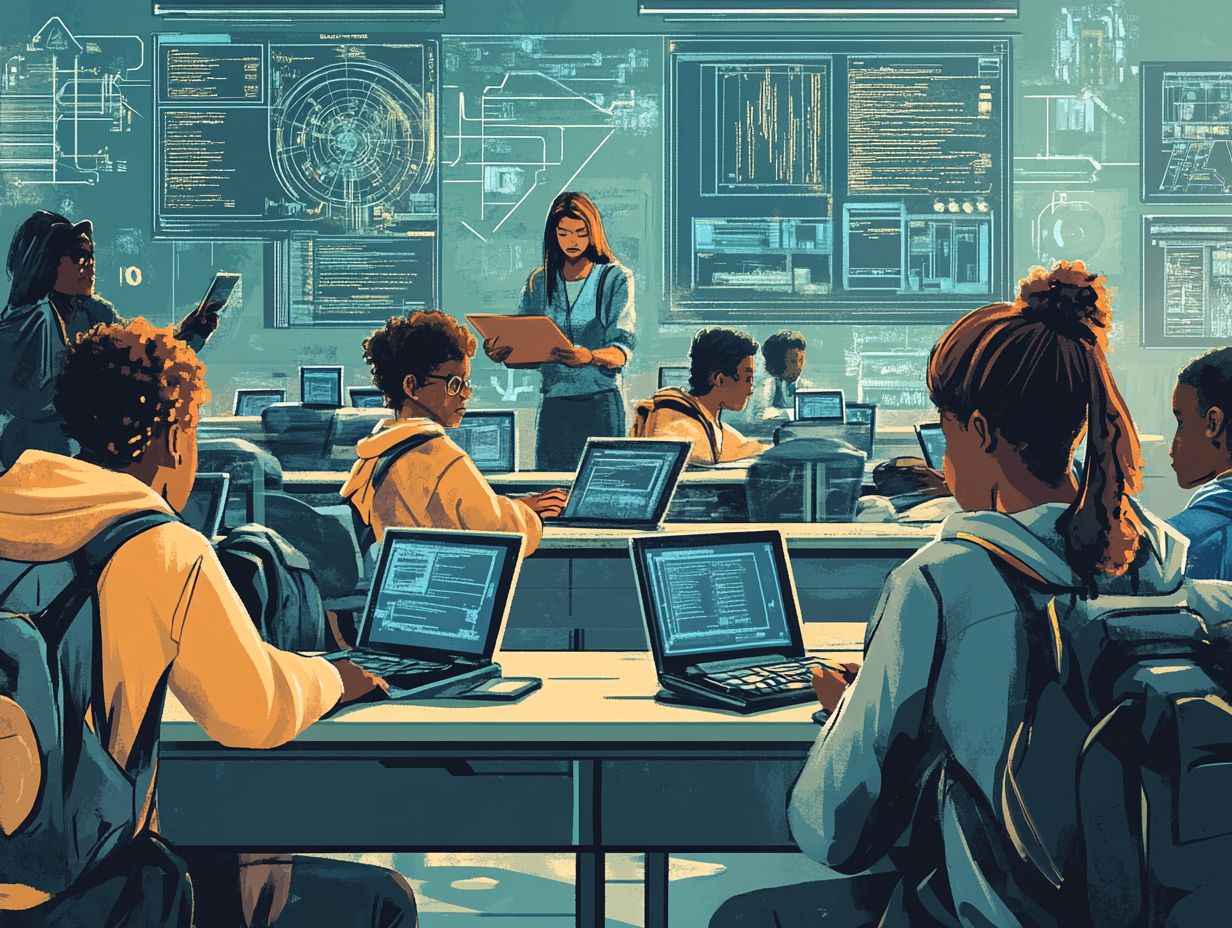
What is the current state of standardized testing in education?
Currently, standardized testing is a widely used method for assessing students’ academic achievement and determining their readiness for the next level of education. It is a controversial topic, with some arguing that it is necessary for accountability while others criticize its negative impact on student learning and well-being.
How is technology impacting the future of standardized testing in education?
Technology is expected to play a major role in the future of standardized testing in education. With the development of online testing platforms and artificial intelligence, testing can become more efficient, adaptive, and personalized to each student’s needs.
What are some proposed changes to the traditional standardized testing format?
There have been many proposed changes to the traditional standardized testing format, including moving towards more project-based assessments, incorporating performance tasks and portfolios, and using multiple measures of assessment rather than relying solely on test scores.
How do standardized tests impact students and their education?
Standardized tests have been shown to have both positive and negative impacts on students and their education. On one hand, they can provide valuable information about a student’s academic progress and areas for improvement. On the other hand, they can also cause stress and anxiety, narrow the curriculum, and promote teaching to the test.
What is the role of standardized testing in college admissions?
Standardized testing has long influenced college admissions. Many universities rely heavily on test scores when making decisions.
Recently, a movement has emerged advocating for test-optional admissions. This allows students to decide whether to submit their test scores.
What is the future of standardized testing in education?
The future of standardized testing is unclear. Many discussions focus on the pros and cons of standardized testing and its effectiveness and impact.
Standardized testing will likely remain part of education. However, expect changes to make it fairer and more relevant for students.


